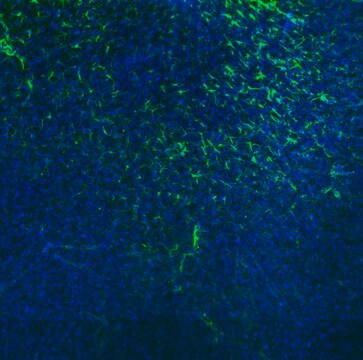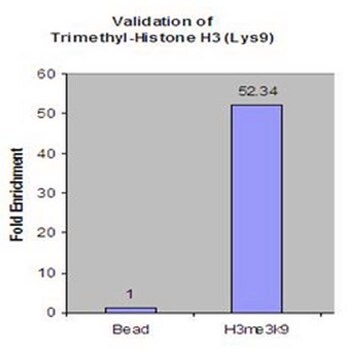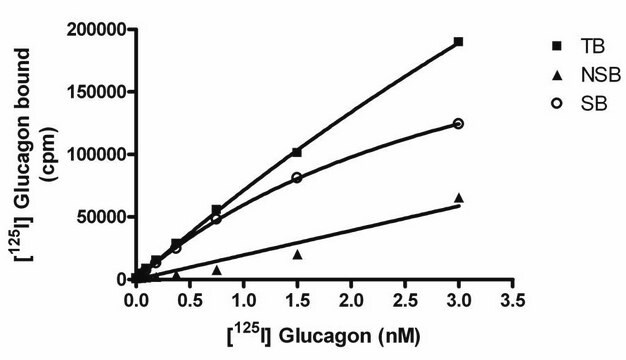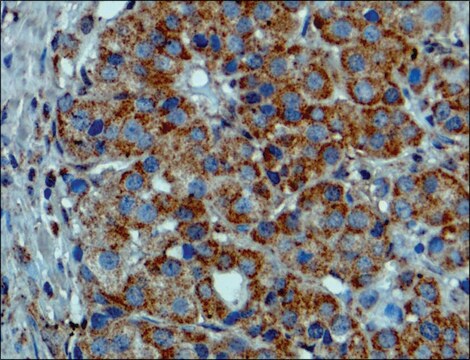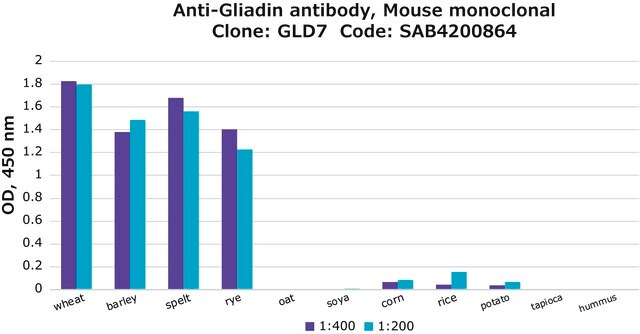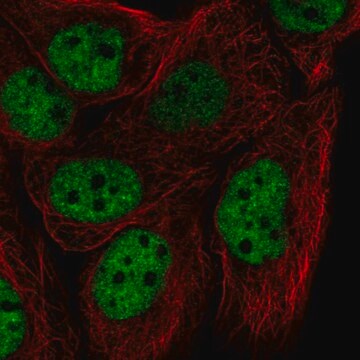04-1462
Anti-hnRNP F Antibody, clone 3H4
clone 3H4, from mouse
Synonyme(s) :
heterogeneous nuclear ribonucleoprotein F, nucleolin-like protein, HnRNP F protein, Nucleolin-like protein mcs94-1, mcs94-1
About This Item
Produits recommandés
Source biologique
mouse
Niveau de qualité
Forme d'anticorps
purified immunoglobulin
Type de produit anticorps
primary antibodies
Clone
3H4, monoclonal
Espèces réactives
human
Technique(s)
immunocytochemistry: suitable
immunoprecipitation (IP): suitable
western blot: suitable
Isotype
IgG1κ
Numéro d'accès NCBI
Numéro d'accès UniProt
Conditions d'expédition
wet ice
Modification post-traductionnelle de la cible
unmodified
Informations sur le gène
human ... HNRNPF(3185)
Description générale
The hnRNPs are RNA binding proteins that complex with heterogeneous nuclear RNA (hnRNA) and associate with pre-mRNAs in the nucleus. These complexes are associated with pre-mRNA processing and other aspects of mRNA metabolism and transport. There are more than 20 different heterogeneous nuclear ribonucleoproteins (hnRNPs) associated with pre-mRNAs in the nucleus of mammalian cells. These different hnRNPs display a range of affinities for a variety of ribonucleotidehomopolymers and ssDNA sequences. In constrast, hnRNP F protein as well as hnRNP H (a highly related protein) appear to bind only to poly(rG). These unique RNA-binding properties, as well as the amino acid sequence and other data showing a distinct intranuclear localization of hnRNP F and hnRNP H suggest they are unique from other hnRNP and play an important role in the processing of RNAs containing guanosine-rich sequences.
Spécificité
Immunogène
Application
A representative lot was used by an independent laboratory for IP. (Matunis, M.J., et al. (1994). Nucleic Acids Res. 22(6):1059–1067.)
Immunofluorescence Analysis:
A representative lot was used by an independent laboratory in IF. (Matunis, M.J., et al. (1994). Nucleic Acids Res. 22(6):1059–1067.)
Epigenetics & Nuclear Function
RNA Metabolism & Binding Proteins
Qualité
Western Blot Analysis: 0.5 µg/mL of this antibody detected hnRNP F on 10 µg of K562 cell lysate.
Description de la cible
Forme physique
Stockage et stabilité
Remarque sur l'analyse
K562 cell lysate
Autres remarques
Clause de non-responsabilité
Vous ne trouvez pas le bon produit ?
Essayez notre Outil de sélection de produits.
Code de la classe de stockage
12 - Non Combustible Liquids
Classe de danger pour l'eau (WGK)
WGK 1
Point d'éclair (°F)
Not applicable
Point d'éclair (°C)
Not applicable
Certificats d'analyse (COA)
Recherchez un Certificats d'analyse (COA) en saisissant le numéro de lot du produit. Les numéros de lot figurent sur l'étiquette du produit après les mots "Lot" ou "Batch".
Déjà en possession de ce produit ?
Retrouvez la documentation relative aux produits que vous avez récemment achetés dans la Bibliothèque de documents.
Notre équipe de scientifiques dispose d'une expérience dans tous les secteurs de la recherche, notamment en sciences de la vie, science des matériaux, synthèse chimique, chromatographie, analyse et dans de nombreux autres domaines..
Contacter notre Service technique